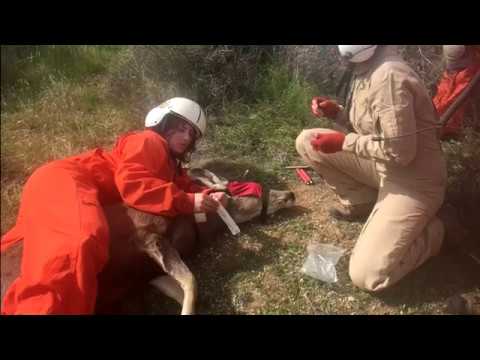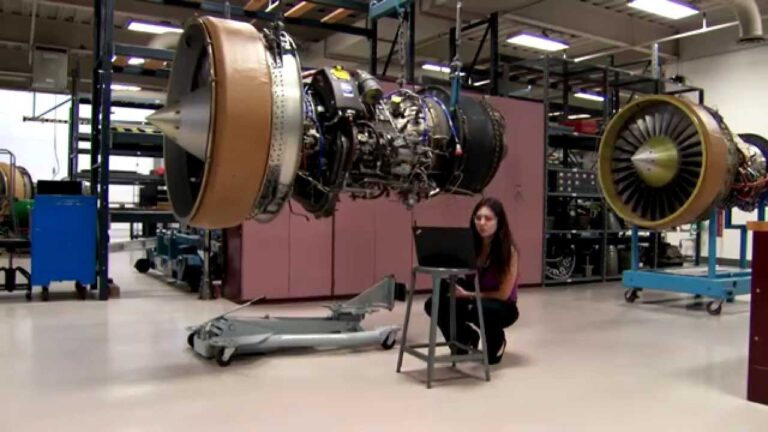Science Attaché: Job Description and Salary

Science Attaché Job Description Template
Science Attaché Job Description A Science Attaché is a diplomatic officer who acts as a bridge between the scientific community and the government. They are responsible for providing expert advice and information on scientific matters to support policymaking and decision-making processes at the national and international levels. The main role of a Science Attaché is to promote scientific collaboration and cooperation between different countries. They represent their home country’s scientific interests and facilitate the exchange of knowledge, research, and technology in various fields such as medicine, engineering, environmental science, and more. They establish and maintain relationships with foreign scientists, research institutions, and government agencies to foster scientific partnerships and joint initiatives. Science Attachés also play a crucial role in monitoring and analyzing scientific developments and trends worldwide. They provide regular reports and briefings to their government on emerging technologies, breakthroughs, and potential risks that may impact national security, economic growth, or public health. They collaborate with relevant stakeholders to develop science-based policies and strategies to address scientific challenges and exploit opportunities for their country’s benefit. Strong communication and networking skills are essential for a Science Attaché, as they need to effectively convey complex scientific information to policymakers, scientists, and the general public. They should possess a deep understanding of scientific research methodologies, regulations, and ethical considerations. Additionally, they must stay updated on the latest advancements and research in various scientific disciplines. In summary, a Science Attaché acts as a liaison between the scientific community and the government, promoting scientific collaboration, providing expert advice, and facilitating knowledge exchange and cooperation. They are instrumental in shaping science-based policies and strategies to ensure the development and progress of their home country.Science Attaché Responsibilities
Science Attaché Requirements
How Much Does A Science Attaché Make?
Science Attaché Salary
| Country | Salary Range (Annual) |
|---|---|
| United States | $70,000 – $110,000 |
| United Kingdom | £30,000 – £70,000 |
| Australia | AUD 80,000 – AUD 120,000 |
| Germany | €45,000 – €70,000 |
| France | €35,000 – €60,000 |
Science Attaché salary varies depending on the country. In the United States, the salary range is typically between $70,000 and $110,000 per year. In the United Kingdom, it ranges from £30,000 to £70,000 annually. In Australia, the salary range is generally around AUD 80,000 to AUD 120,000 per year. In Germany, Science Attachés can expect to earn between €45,000 and €70,000 per year, while in France the range is typically between €35,000 and €60,000 per year.
Science Attaché Salaries by Country
Top Paying Countries for Science Attaché
| Country | Salary (USD) |
|---|---|
| United States | 110,000 |
| Switzerland | 105,000 |
| Australia | 95,000 |
| Germany | 90,000 |
| United Kingdom | 85,000 |
Science Attachés play a vital role in promoting scientific collaboration and exchange between countries. These professionals are responsible for representing their nation’s scientific interests abroad, fostering partnerships, and facilitating research collaborations. The salaries of Science Attachés vary across countries, with the United States offering the highest average salary of $110,000 per year. Switzerland, Australia, Germany, and the United Kingdom also provide competitive compensation packages for Science Attachés. These top-paying countries recognize the importance of attracting and retaining highly skilled individuals to promote scientific advancements and enhance global scientific cooperation.
A video on the topic Science Attaché
Video Source : The Hebrew University of Jerusalem OfficialInterview Questions for Science Attaché
1. What is the role of a Science Attaché?
A Science Attaché is a diplomatic officer who promotes scientific collaboration and communication between countries. They serve as a bridge between the scientific community and the government, providing advice, facilitating partnerships, and promoting science and technology.
2. What qualifications are required to become a Science Attaché?
To become a Science Attaché, typically a strong background in science or technology is required, along with a graduate or postgraduate degree in a relevant field. Additionally, excellent communication, networking, and diplomatic skills are necessary to effectively represent the scientific interests of their country.
3. How do Science Attachés contribute to international scientific cooperation?
Science Attachés play a crucial role in fostering international scientific cooperation by facilitating collaborations, coordinating research projects, organizing scientific events, and promoting the exchange of scientific knowledge and expertise between countries.
4. What are the main challenges faced by Science Attachés?
Some of the main challenges faced by Science Attachés include navigating complex political landscapes, overcoming language and cultural barriers, managing limited resources, and keeping up with the rapidly evolving scientific advancements in various fields.
5. How do Science Attachés support policy-making processes?
Science Attachés support policy-making processes by providing scientific advice and expertise to government officials. They contribute to evidence-based decision making, help shape policies related to science and technology, and promote the integration of scientific research into national and international agendas.
6. What is the importance of Science Attachés in promoting science diplomacy?
Science Attachés play a vital role in promoting science diplomacy, which involves using scientific collaboration as a means to build relationships, foster mutual understanding, and address global challenges. They help establish trust, facilitate international partnerships, and promote the use of science for diplomatic purposes.
7. How do Science Attachés stay updated with the latest scientific advancements?
Science Attachés stay updated with the latest scientific advancements through continuous learning, attending scientific conferences and workshops, networking with researchers and scientists, collaborating with academic institutions, and monitoring scientific publications and journals.
8. What are the key responsibilities of a Science Attaché?
The key responsibilities of a Science Attaché include promoting scientific collaboration, providing scientific advice to policymakers, facilitating partnerships between scientists and institutions, organizing scientific events, monitoring scientific developments, and representing the scientific interests of their country in international forums.
9. How do Science Attachés contribute to economic development?
Science Attachés contribute to economic development by fostering innovation, technology transfer, and research and development collaborations between countries. They help attract foreign investments, promote entrepreneurship, and support the commercialization of scientific discoveries and inventions.
10. What is the future outlook for Science Attachés?
The future outlook for Science Attachés is promising, as global collaboration and the importance of science in addressing global challenges continue to grow. With advancements in technology and the need for evidence-based policies, the role of Science Attachés is expected to become even more critical in the coming years.
The Best Universities For The Science Attaché Profession.
Frequently asked questions about Science Attaché
What is a Science Attaché?
What qualifications are required to become a Science Attaché?
What are the responsibilities of a Science Attaché?
1. Facilitating scientific collaboration and exchange between the home country and the host country. This may involve organizing conferences, workshops, and seminars, and connecting researchers and institutions from both countries.
2. Providing advice and information on scientific matters to policymakers and government officials. Science Attachés often play a crucial role in shaping science and technology policies and decisions.
3. Promoting their country’s scientific achievements and initiatives. This can include organizing science-themed events, showcasing research outcomes, and highlighting opportunities for collaboration.
4. Monitoring and analyzing scientific developments in the host country. Science Attachés keep abreast of the latest research and technological advancements, which helps in identifying potential areas of collaboration and informing policymakers.
5. Building networks and fostering relationships with scientists, research institutions, and government agencies in the host country. This involves attending conferences, meetings, and networking events to establish and maintain connections that can facilitate scientific cooperation.
How does one become a Science Attaché?
1. Obtaining a relevant scientific degree and gaining experience in a scientific field. This typically involves pursuing higher education, conducting research, and publishing scientific papers.
2. Acquiring knowledge and skills in diplomacy and international relations. This can be done through formal education, such as a master’s degree in international relations or diplomatic studies, or through practical experience in diplomatic settings.
3. Joining the diplomatic service of the home country. This usually involves passing competitive exams and undergoing training to become a diplomat.
4. Expressing interest in the Science Attaché position and applying for openings within the diplomatic service.
5. Going through a selection process, which may include interviews, assessments, and evaluations of qualifications and experience.
6. Upon selection, receiving specialized training and orientation as a Science Attaché to understand the specific responsibilities and protocols involved in the role.
What are the benefits of being a Science Attaché?
1. The opportunity to contribute to the advancement of science and technology diplomacy. Science Attachés play a crucial role in fostering international scientific collaboration, which can lead to breakthroughs, knowledge sharing, and the development of innovative solutions to global challenges.
2. Exposure to cutting-edge research and technological advancements. Science Attachés have access to the latest scientific developments in both their home country and the host country, allowing them to stay at the forefront of scientific knowledge.
3. Building a diverse professional network. Science Attachés interact with scientists, researchers, policymakers, and diplomats from around the world, creating valuable connections that can benefit their career and open doors to new opportunities.
4. Developing diplomatic and negotiation skills. As Science Attachés engage in diplomatic activities, they enhance their ability to negotiate, build consensus, and represent their country’s interests effectively in international settings.
5. Travel and cultural experiences. Science Attachés often travel to different countries, attend conferences and events, and immerse themselves in different cultures. This provides them with unique experiences and broadens their perspective.






